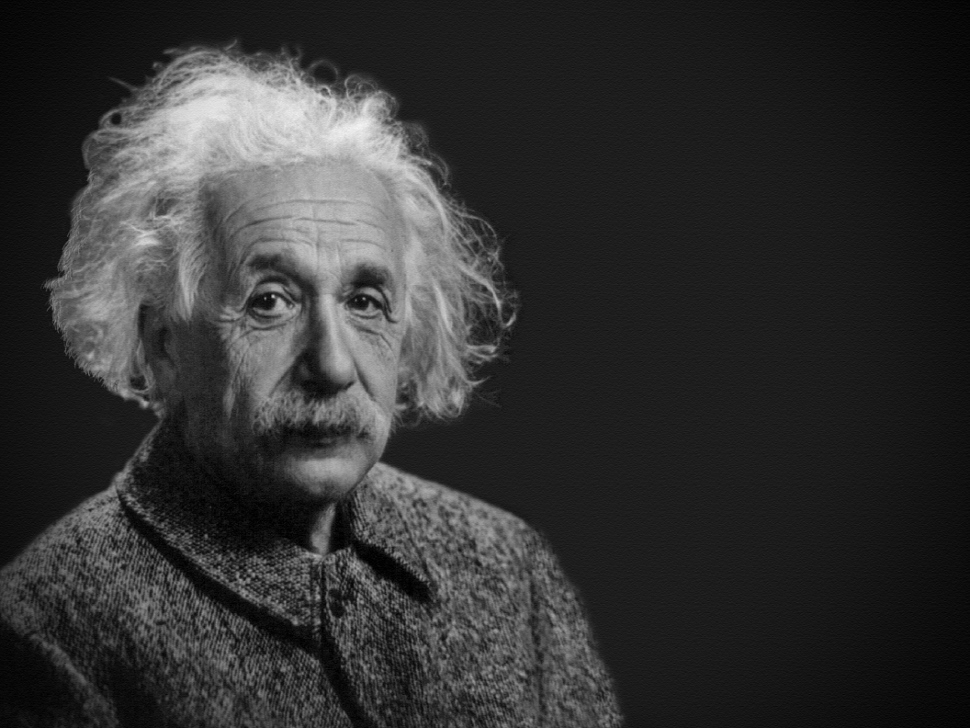
I’ve written on what psychology says is the key to happiness, the employee happiness equation, and the 5 unhappiness traps, so I was piqued to see what Albert Einstein himself would have to say about it.
It turns out that when Einstein visited Japan in 1922 to receive the Nobel Prize in Physics, he stayed at The Imperial Hotel in Tokyo. But the genius didn’t think to have money with him to tip a messenger, so instead, he wrote notes on hotel paper as a tip, saying the notes would be valuable.
Um, yeah.
A Jerusalem auction house sold the note, Einstein’s theory on happiness, written in German in a single sentence, for an astonishing $1.56 million dollars.
The note translated to:
A calm and modest life brings more happiness than the pursuit of success combined with constant restlessness.
Let’s start with what Albert got right.
There are absolutely times when we should settle into a mode of calm stasis at work (and in life). In fact, philosophy professor Robert Goodin from the University of Essex points out that settling at times is “intrinsic to living any kind of meaningful existence because virtually all human activity requires some stability, some fixed points, some closed-off options.”
Accept a job and it’s important to commit to it for a time instead of continually scanning the landscape for better options.
Thus, we actually can’t function without some level of settling.
The problem arises when we don’t follow Goodin’s advice to periodically check in on the balance of settling versus striving in your professional career (and life).
And this is where I think Einstein either had one of those crappy hotel pens so couldn’t finish his thought or (gasp) he missed a key point:
Leading a calm and modest life can lead to settling and boredom if we aren’t careful.
I’m not suggesting live a frantic life and go out and buy a five-finger gold ring tomorrow to thumb your nose at modesty.
But I do think following Einstein’s advice verbatim can soon lead to settling and boredom and an absence of being open to new experiences, the factor that most correlates with facilitating feelings of inspiration.
Which brings me to my tips on how to avoid settling and unwittingly hitting a plateau in your life. And they’re even written digitally, in a more permanent form than hotel stationery.
1. Take responsibility if you’ve settled and become bored.
Unstuck starts with “U.” You have to realize you’re in a rut before you can pull yourself out of one. American humorist Will Rogers said, “The road to success is dotted with many tempting parking spaces”. Be honest with yourself if you’ve put it in “park” and take ownership to get it back in “drive”.
2. Ascertain the pattern, then airlift yourself out.
When we get stuck, by definition we’re caught in a pattern of some sort. This is about being self-aware enough to recognize the specifics of the pattern that you’ve fallen into and the corresponding habits that are weighing you down.
If someone else was examining your behaviors that have you stuck, what would they point out? Are you repeatedly telling yourself “just a few more years of this”? Are you continually avoiding new challenges when they arise or dodging conversations with friends on how you’re doing?
The critical first step is to embrace a state of awareness about the patterns and behaviors that have you stuck. Then, and only then, can you change your behaviors and begin working to yank yourself out of it.
3. Recommit to the concept of challenge.
Think of what it means to challenge — it’s to put opposition against or test the abilities of something. When we’re stuck in a rut, we tend to push the very idea of challenge out of our peripheral zone so we can numbly stay in our false comfort zone.
We’re in a mode of repetition and path of least resistance. We aren’t challenging much of anything–our assumptions, the status quo, or ourselves. We weren’t always like this–we can remind ourselves of how exhilarating it is to be challenged by simply starting with a small, doable challenge.
But mostly, just start–think of challenge as a curious notion in and of itself and pique your interest in the idea and its potential once again.
4. Get “next” going.
It’s hard to change course if you don’t have a destination. We can get stuck at times simply because we haven’t envisioned the next re-energizing step in our path.
But you have to take that first step on what’s next to move things from a rut to a reinvigorating route.
So yes, I have the audacity to refute Einstein. Next up–his theory of relativity.




Leave a Reply